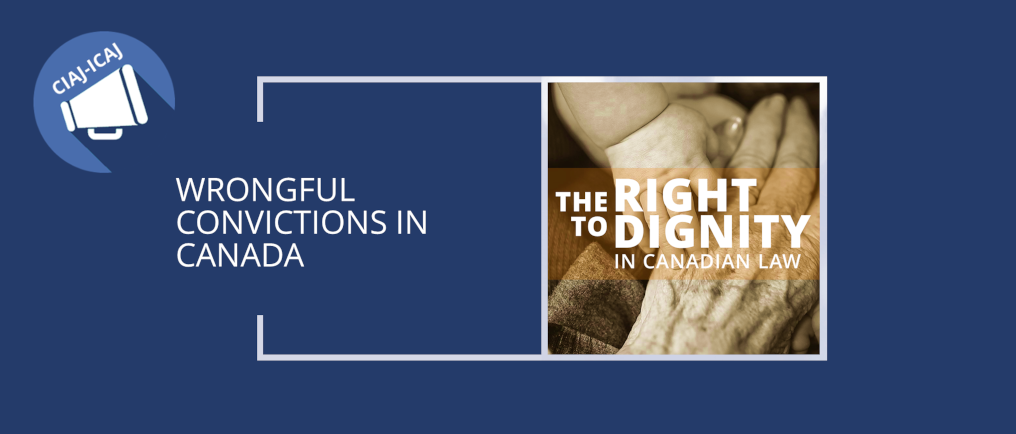Wrongful Convictions in Canada

Police officers, Crown counsel, forensic scientists, judges and defence counsel all have a role to play in ensuring that innocent people are not convicted of crimes they didn’t commit. On a systemic level, there is a strong need to understand and protect the human dignity of both an accused and victims. This protection needs to be reflected at every stage of criminal justice. Individually, the people working to support the administration of justice must actively shift the attitudes, practices, and cultures that contribute to the wrongful conviction of innocent people.
Following a number of high profile wrongful convictions in Canada, numerous public inquiries have been tasked with identifying contributing factors and making recommendations. It is now well established that racial bias, tunnel vision, youth vulnerability, prosecutorial ethics, and expert witnesses all play a role. At the core of these contributing factors is the defence of Charter-protected rights of both the accused and victims. Underlying these rights is the protection of human dignity. This single fundamental issue is reflected in the attitudes, practices, and cultures within the criminal justice system and offers the most promising grounds for reform.
These issues and more will be addressed at CIAJ’s 46th Annual Conference on “The Right to Dignity in Canadian Law,” which will take place October 26-28, 2022 in person in Halifax, NS, and Online. The second panel at the conference will provide an update on wrongful convictions in Canada, and offer participants a new approach to understanding them, through the lens of dignity law.
Courts have made it clear that principles of human dignity underlie almost every right guaranteed by the Charter, yet this link remains undeveloped. Through a series of guiding questions informed by recent developments in dignity law, commentary, and a better understanding of wrongful convictions, participants will leave empowered to effect necessary change in an effort to prevent, identify, and remedy wrongful convictions regardless of their role in the administration of justice. The entire legal community can contribute to necessary systemic changes to collective attitudes, practices, and cultures within the criminal justice system.
Note that R. Maria Shepherd, Principal, Sr. Paralegal & Notary Public, Shepherd Advocacy & Litigation and Co-director of Innocence Canada is the Keynote Speaker for the Conference. The Ontario Court of Appeal on February 29, 2016 quashed Maria Shepherd’s manslaughter conviction and entered an acquittal in its place. This momentous day unfortunately took 25 stressful years to come to fruition.
Some seasoned panellists will be offering their expertise and personal experience on Panel 2:
Panel Chair
- Kent Roach, CM, FRSC, Professor of Law, Faculty of Law, University of Toronto
Learn more about Professor Kent Roach by reading his portrait on our blog here.
Speakers
- The Honourable Harry LaForme, Senior Counsel, Olthuis Kleer Townshend LLP; Retired Judge, Court of Appeal for Ontario; Canada’s first Indigenous appellate judge
- Tamara Levy, Q.C., Director, UBC Innocence Project, Peter A. Allard School of Law, University of British Columbia
- The Honourable Kim Pate, OC, Senator, Senate of Canada
Panel 2 keywords: criminal law, criminal justice reform, wrongful convictions, miscarriages of justice, dignity law, human dignity, Canadian Charter of Rights and Freedoms, administration of justice, duty of the Crown.
More blog posts on dignity are available on this page: https://ciaj-icaj.ca/en/blog/
Conference Overview
CIAJ’s 46th Annual Conference, entitled “The Right to Dignity in Canadian Law,” will discuss dignity as a fundamental human right. The conference will cover the many facets of the concept of dignity, from moral and philosophical notions to its uses as a legal norm. Discussion of the topic will be grounded in eminently pertinent issues such as the role of dignity in gender identity and reproductive rights, as well as medical assistance in dying, elder care, disability, and equality rights. The role of dignity will also be discussed in the context of the Canadian criminal justice and carceral systems, particularly with regards to Indigenous Peoples, restorative justice, the United Nations Declaration on the Rights of Indigenous Peoples, and reconciliation.
